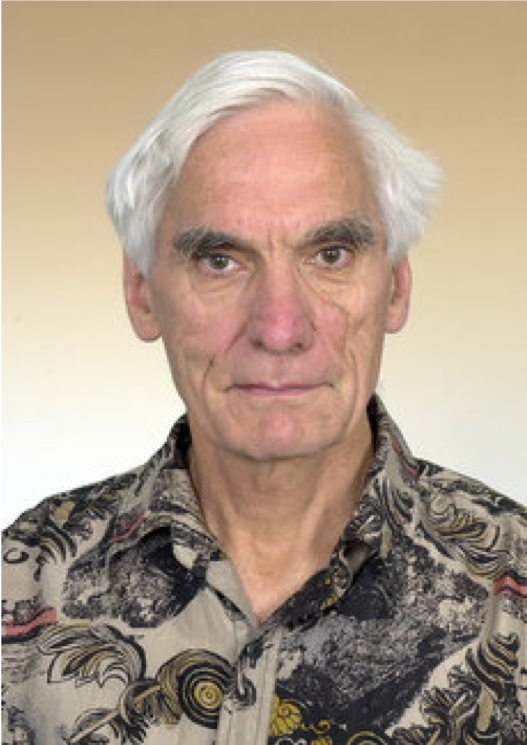Jubilee Fellow – 2015

Emeritus Professor Keith Hancock AO
BA (Melbourne), PhD (London), Hon DLitt (Flinders), HonDCom (Melbourne), Honorary Fellow (LSE)
2015 Reflections
The 47 years that have passed since I became a member of the Social Science Research Council test severely my imperfect memory. I believe that my sponsors were Professors Peter Karmel and Oliver MacDonagh. Karmel was the Vice-Chancellor of Flinders University and MacDonagh the Chairman of the School of Social Sciences. I was the inaugural Professor of Economics and also Vice-Chairman of the School. My recollection is hazy, but I think that I may have been nominated unsuccessfully for the SSRC in the previous year.
In the late sixties, my principal concerns were those of establishing a successful university and, within it, a successful discipline of economics. In the case of economics, I was much assisted by Bob Wallace, who is still a Fellow of the Academy. My principal research interest was wage fixation. This was a time when there was much interest in incomes policy—especially wage policy—as a means to combat inflation. I had been commissioned by the Committee of Economic Enquiry (the Vernon Committee) to write a paper on the subject, and this was the basis of one of the chapters in the report. It may be that this work contributed to my admission to the SSRC.
At the time when I joined, the influential figures in the SSRC included Mick Borrie, Dick Downing, Perc Partrudge and Bill O’Neill. The small office was located in the National Library, where the annual meetings were held. The move to change from a Council to an Academy came a few years later. One of the main proponents was Russell Mathews, but the shift was driven largely by the inception of the Academy of the Humanities. I remember a somewhat heated debate about whether our Academy should apply for a Royal Charter, as Humanities had done. The question was resolved in the negative.
I was a regular attender at Council and Academy meetings through the 1970s. Nevertheless it came as a surprise when, in 1981, I was invited to let my name go forward for President. By then, I was Vice-Chancellor of Flinders University. Adding the Academy to my commitments was perhaps foolhardy; and it was during my tenure as President that I was also asked to chair the Committee of Review of Industrial Relations Law and Systems. Despite the pressures, I much enjoyed the work of the Academy. Mick Borrie was an effective Director and I liked working with him. In those days, the Academy was located in University House, sharing space with Humanities.
One of my memories of my Presidency is my attendance at the annual dinner of the Academy of Science. I travelled to Canberra via Melbourne and it was at Melbourne that I received a message from my secretary at Flinders saying that the Science dinner was black tie. (This, of course, was before the days of mobiles, but I cannot remember how the conversations were arranged.) My secretary knew that I had not taken a dinner suit, but in negotiations with Erica Harriss, secretary of the Academy, it was arranged that Erica would meet me with her husband Bob’s suit. Bob was smaller than I, but I managed to squeeze into his suit and the evening went without disaster.
One of my successors tried to establish the black tie tradition for our annual dinners, but this was a bridge too far for our Fellows.
Another recollection from my presidency was seeking to have the Academy made eligible to receive tax-deductible donations. The Academy of Science already had that privilege. I called on the Secretary of the Treasury, John Stone, who was then one of our Fellows. I was bluntly rebuffed, and when I mentioned the anomalous difference between the two Academies, I was left in no doubt that the preferred solution to the anomaly was to remove the already-existing privilege.
I mentioned this encounter to George Polites, one of the members of the Committee of Review. George said that I should see ‘his knibs’ about it. And so I made an appointment, for some months ahead, to see Bob Hawke. I took with me Dick Eggleston, one of our Fellows. Bob and I, as raw graduates, had assisted Eggleston, the ACTU counsel in the 1956-57 basic wage case. When we saw the PM, he chatted at length about old times. He had a file on the table and at the end of our conversation he waved toward it and said ‘Of course, this will be quite OK’. That is how the Academy got tax deductibility.
My successor as President was my dear friend Joe Isaac. There was some debate within the executive about the desirability of having two economists in succession, but so far as I know this caused no problem. Joe, at the time, was a Deputy President of the Australian Conciliation and Arbitration Commission and sought successfully the consent of his President, Sir John Moore, to his taking the Academy role.
In the past 30 years, my only official role in the Academy was serving for four years or so on the Membership Committee. But I have been a regular attender at annual meetings and, from time to time, an active participant in workshops. I have seen the Academy become much larger and better resourced. The growth in size has occurred in spite of the hurdle for getting in being silently and gradually raised. The Academy is now blessed with an effective bureaucracy. It has gained recognition, along with other Academies, as a prime spokesman for the areas that it represents. A significant institution has grown from humble beginnings.